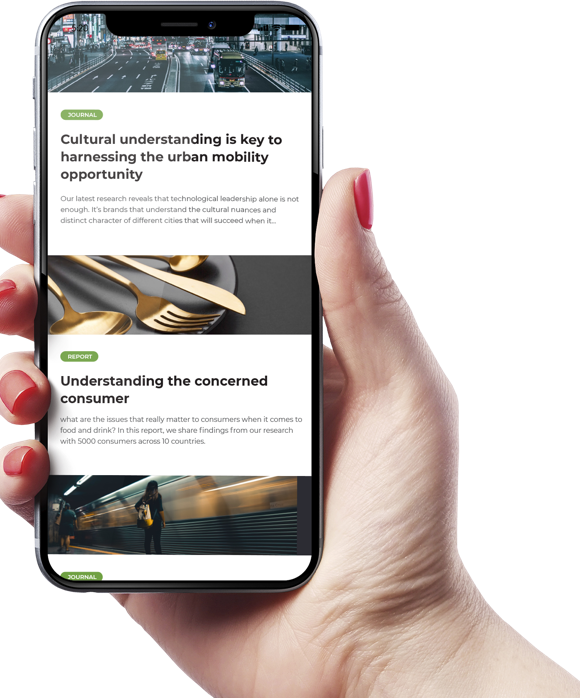From one of the world’s poorest and most isolated nations, Vietnam has emerged as a force to reckon with for international investors. Now a middle-income country with a young population, Vietnam provides a wealth of opportunities for brands entering the country.
Owing to a rising middle class and a boost in manufacturing and exports, an increasing number of brands are eager to make an entry into Vietnam.
It was announced yesterday that Apple is in the process of relocating Apple Watch and Mac production to Vietnam as part of a broader push to diversify its supply chain.
In recent years, Vietnam has shown immense resilience. At the peak of the pandemic in 2020, when most other countries were derailed economically, Vietnam was one of the few countries to post GDP growth. In 2021, the country had a rough year, but the economy is expected to rebound to 5.5 percent in 2022.
Get regular insights
Keep up to date with the latest insights from our research as well as all our company news in our free monthly newsletter.

The government provides various incentives to attract international companies looking to establish local production and distribution of their products.
This rapid growth and a consumer-driven modern lifestyle have set the stage for foreign investment. There have been shifts in consumer spending and behaviours, and an understanding of these changes and the cultural nuances of the local population are critical to successful market entry in Vietnam.
So how can international investors and brands tap into this lucrative market?
Brands can conduct thorough market research to understand the market, culture, consumer behaviour, and economic and socio-political conditions to map out a successful market entry roadmap and strategy.
Setting up and registering a company in Vietnam.
Setting up a company in Vietnam is a straightforward process, but knowing the options available and the specific guidelines and rules for foreign organizations is critical to success. The two most common forms of foreign-owned companies or legal entities are a Limited Liability Company (LLC) and a Join-stock Company (JSC).
Vietnam is easy to enter and carry out business in as it also offers 100 percent ownership of a company in most industries. Industries that have restrictions on foreign ownership require companies to enter into a joint venture with a local Vietnamese company.
As long as the business covers the expenses and can sustain itself, there are no minimum capital requirements for investing in most businesses and industries. All companies in Vietnam need a physical office address and at least one resident director with a local residential address.
In some cases, you don’t need to set up a company in Vietnam as there are alternative ways, such as having a representative office or having an employer of record —a third-party service provider that recruits and manages employees on behalf of your company.
Vietnam’s stable political climate and socio-economic conditions
A country’s political climate is an important consideration when weighing the opportunities and challenges of entering an international market.
Vietnam is a unitary single-party state, which means there is only one political party; and the formation of other political parties is forbidden. This makes the political environment stable.
Political stability is one of the most critical considerations in entering a new market. Protests and civil unrest are rare, with occasional demonstrations.
On the 2022 economic freedom index, with a financial freedom score is 60, and out of 39 countries, Vietnam is ranked 18th in the Asia Pacific region.
Hiring in Vietnam
Another important aspect of setting up a company in an international market is understanding the labour market —its laws, guidelines, and policies.
Vietnam provides a labour force at a relatively lower cost. The Mekong Region, which includes Laos, Thailand, Myanmar, Cambodia, and some Chinese provinces provides, puts foreign brands in front of a vast, affluent population.
Organizations that ensure equity and fair compensation and benefits attract high-quality talent. Brands should understand legal compliance and H.R. policies and even partner with local H.R. consultants to handle hiring, payroll, and other such functions.
The role of Foreign Direct Investment in the growth of Vietnam
Foreign direct investment has played a pivotal role in transforming Vietnam from one of the poorest countries in East Asia to one of the fastest growing with a rising middle class. Vietnam’s massive untapped potential, a relatively cheap workforce, and abundant natural resources draw foreign investors to the country.
The government’s strategy is to attract high-tech companies to the country, with a focus on four primary sectors, namely, manufacturing, agriculture, travel, and services.
Furthermore, the government’s efforts to boost trade and investment through free-trade agreements make Vietnam an attractive market for foreign investors.
Challenges and competition from other ASEAN countries
Second, only to Singapore, Vietnam was the most attractive destination for foreign investors among ASEAN nations in 2016 —a significant uptick in its rankings in World Bank’s 2018 “Ease of Doing Business” report from 82 to 68 out of 190 from just one year ago.
Vietnam lags behind Singapore in most aspects, reflecting the need for more progress to become the region’s most attractive foreign investment destination.
Some other risks associated with doing business in Vietnam include a weak banking sector and the boom in private sector investments.
The economy is poised to grow at a faster pace next year. According to a World Bank economic update from August 2022, Vietnam’s economic recovery sped up over the last six months. The strong rebound in services and manufacturing is driving this growth. GDP growth is forecast to surge from an estimated 2.6 percent in 2021 to 7.5 percent in 2022, which is even better news for International brands that have an eye on the ASEAN market.


 Senior Marketing Executive
Senior Marketing Executive Sales & Marketing
Sales & Marketing General Manager PR -Internal Communications & Government Affairs
General Manager PR -Internal Communications & Government Affairs Vital Strategies
Vital Strategies
 Customer Intelligence Director
Customer Intelligence Director